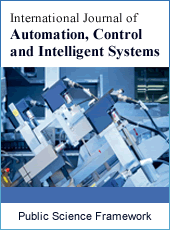International Journal of Automation, Control and Intelligent Systems
Articles Information
International Journal of Automation, Control and Intelligent Systems, Vol.1, No.4, Nov. 2015, Pub. Date: Dec. 6, 2015
Data-Driven Constrained PID Controller Design for CSTR
Pages: 97-101 Views: 3036 Downloads: 1171
[01]
Xu Dezhi, Key Laboratory of Advanced Process Control for Light Industry (Ministry of Education), Jiangnan University, Wuxi Jiangsu, China.
[02]
Ji Nan, Key Laboratory of Advanced Process Control for Light Industry (Ministry of Education), Jiangnan University, Wuxi Jiangsu, China.
Since most chemical processes exhibit severe nonlinear and time-varying behavior, the control of such processes is challenging. In this paper, we propose data-driven constrained controller design method based on lazy learning for chemical processes. Using a lazy learning algorithm, a local valid linear model denoting the current state of system is automatically exacted for adjusting the PID controller parameters based on input/output data. This scheme can adjust the constrained PID parameters in an online manner even if the system has nonlinear properties. At same time, in order to solve the control input saturation problem, a dynamic anti-windup compensator is proposed for accommodating the reference. The simulation results on the dynamic model of Continuous Stirred Tank Reactor (CSTR) are provided to demonstrate the effectiveness of the proposed new control techniques.
Data-Driven, Lazy Learning, PID, Dynamic Anti-Windup, Continuous Stirred Tank Reactor (CSTR)
[01]
XU M, LI S Y, CAI W J. Receding horizon optimization approach to PID controller parameters auto tuning. Acta Automatica Sinica, 2005, 31(3): 459-463.
[02]
CHEN J H, HUANG T C. Applying neural networks to online updated PID controller for nonlinear process control. Journal of Process Control, 2004, 14(2): 211-230.
[03]
ZHANG Y, CHEN Z Q, YUAN Z Z. Nonlinear system PID-type multi-step predictive control. Journal of Control Theory & Applications, 2004, 21(2): 201-204.
[04]
XU D, JIANG B and SHI P. A novel model free adaptive control design for multivariable industrial processes. IEEE Trans. on Industrial Electronics, 2014, 61(11), 6391-6398.
[05]
XU D, JIANG B and SHI P. Adaptive observer based data-driven control for nonlinear discrete-time processes. IEEE Trans. on Automation Science and Engineering, 2014, 11(4), 1037-1045.
[06]
WANG W. Research on Control Methods of CSTR. Beijing Jiao tong university,2013.
[07]
WANG T. Research on soft sensing methods for estimating parameters of the concentration in continuous stirred tank reactor. Northeaster University, 2008.
[08]
BONTEMPI G, BIRATTARI M. From linearization to lazy learning: a survey of divide-and-conquer techniques for nonlinear control. International Journal of Computational Cognition, 2005, 3(1): 56-73.
[09]
SUN W, WANG W, ZHU R. Iterative learning control for nonlinear system using lazy learning method. Control and Decision, 2003, 3(18): 263-266.
[10]
BOADA M J L, Calvo J A, BOADA B L, et al. Modeling of a magnetorheological damper by recursive lazy learning. International Journal of Non-Linear Mechanics, 2011, 46(3): 479-485.
[11]
WEI C. Comparing lazy and eager learning models for water level forecasting in river-reservoir basins of inundation regions. Environmental Modelling & Software, 2015, 63: 137-155
[12]
ZhANG M L, Zhou Z H. ML-KNN: A lazy learning approach to multi-label learning. Pattern recognition, 2007, 40(7): 2038-2048.
[13]
VALL J M, GALVAN I M, ISASI P. Learning radial basis neural networks in a lazy way: A comparative study. Neurocomputing, 2008, 71(13): 2529-2537.

ISSN Print: 2381-7526
ISSN Online: 2381-7534
Current Issue:
Vol. 4, Issue 4, December Submit a Manuscript Join Editorial Board Join Reviewer Team
ISSN Online: 2381-7534
Current Issue:
Vol. 4, Issue 4, December Submit a Manuscript Join Editorial Board Join Reviewer Team
| About This Journal |
| All Issues |
| Open Access |
| Indexing |
| Payment Information |
| Author Guidelines |
| Review Process |
| Publication Ethics |
| Editorial Board |
| Peer Reviewers |


